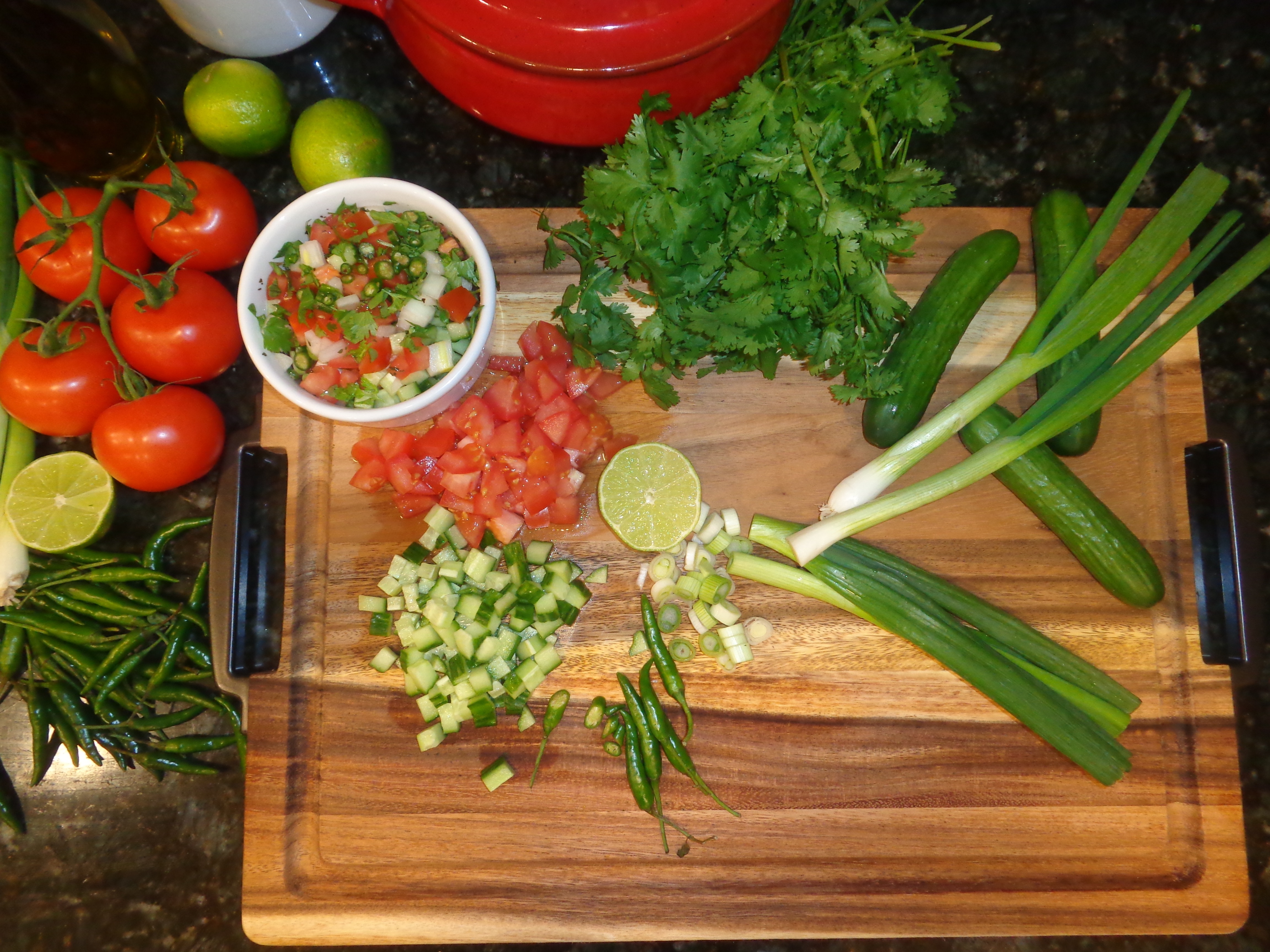Cooking like any other types of Art needs your passion, creativity and practice to start with. Then, once you are in the kitchen all you need is some preparation and organisations. That’s it. You are set. Here is how I can guide you to have fun and enjoy cooking for yourself and your loved ones!
* Always taste your food along the way and before serving it. Don’t be afraid to use salt; it pulls the flavors out of your dishes. Cook with kosher salt and season with sea salt.
* Be liberate with cooking times. Check your dishes by using your own senses (smell, taste, touch) to decide when they are done.
* The most versatile and important tool is a sharp chef’s knife.
*Never use high heat on your stove. Always start with a medium heat, then for simmering use very low heat. This will give you and the ingredients the time to develop. You won’t burn any food; you won’t get discouraged!
* Recipes are only a guideline. Feel free to substitute items that cater to your personal preferences.
* Always heat up your pan for couple of seconds before you add oil, then allow the oil to heat up for same amount before sauté or fry egg or any vegetable or meat.
* Anchor your cutting board to the counter with a damp paper towel to keep things steady and safe.
* Invest in a seasoned cast iron skillet. This kitchen staple distributes heat evenly and is easy to clean.
*Prepping salad before serving is a huge time saver. Layer all the ingredients in a bowl and don’t add the dressing until it’s time to serve.
* Let steaks come to room temperature before seasoning and grilling.
* Kitchen Pantry Essentials: Salt, Pepper, Turmeric, Butter, Olive Oil, Vinegar, Rice or Pasta, Beans &Legumes, Eggs, Tomato, Potato, Garlic, Onion, Flour, few dried herbs jar such as mint, Tarragon, Oregano, Dill weed, Sugar, honey.
* Never overcrowd your skillet with food. The heat will not distribute evenly.
* The basic ratio to make a classic vinaigrette is 3 parts oil to 1part vinegar.
* To keep garlic from going rancid, always store it at room temperature.
* Keep knives sharp by using a sharpening tool frequently. A sharp knife is important for safety and efficiency.
* Purchasing and preparing a whole chicken is cost-effective and resourceful.
* Freeze leftover tomato paste in small ice cube containers.
* Make stock in larger quantities and freeze in plastic bags for later use.
* Invest in high-quality extra virgin olive oil to drizzle over dishes to accent flavors, and enhance your health.
* Save money by purchasing in-season fruit and vegetables. You can freeze and store in airtight containers to save for later.
* Remember: to preserve flavor and prevent burning, it’s important to always cook slow and keep your heat low.
* Rice cookers can be your personal kitchen assistants. Let them do all the tedious work and you will never worry about monitoring and watching water boil.
* Test oil in a pan before adding all of your ingredients. Throw a small piece in and make sure it sizzles before adding the rest.
* Seafood should never smell overwhelmingly fishy; that’s a sure sign that it’s starting to go bad.
* Keep key kitchen appliances, like a blender, on your counter-top to encourage frequent use.
* Overcooked vegetables lose important enzymes and nutrients.

